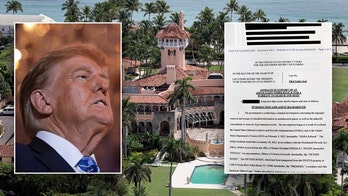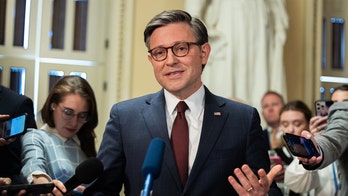The Bush administration is continuing to monitor events in Israel and Gaza, but insisted again Monday that Hamas stop agitating for a fight whose latest violence has resulted in more than 300 dead Palestinians and two dead Israelis.
"In order for the violence to stop, Hamas must stop firing rockets into Israel and agree to respect a sustainable and durable cease-fire. That is the objective to which all parties need to be working. That is what the United States is working towards," National Security Council Spokesman Gordon Johndroe said in Crawford, Texas.
Johndroe said the administration is interested in getting back to the "roadmap" for peace and following the blueprint laid out in 2007 in Annapolis between Israeli Prime Minister Ehud Olmert and Palestinian Prime Minister Mahmoud Abbas, whose Fatah party is at odds with Hamas.
"Now no one wants to see violence," Johndroe said in a press conference with reporters. "We have urged the Israelis to avoid civilian casualties but they are working on decreasing the number of Israeli citizens who are vulnerable ... so they are going to continue to deal at this time with the Hamas terrorist threat."
He said President Bush has spoken to several regional leaders, including the kings of Jordan and Saudi Arabia. He added that Bush had a detailed briefing early Monday by video conferencing with Vice President Dick Cheney, White House chief of staff Josh Bolten and National Security Adviser Stephen Hadley. Secretary of State Condoleezza Rice has also been making calls, speaking Monday afternoon with Russian Foreign Minister Sergey Lavrov.
Hamas, which is dedicated to the destruction of Israel and considered a terrorist group by the U.S. and European Union, canceled its participation in a cease-fire earlier this month, and has been sending a barrage of rockets from Gaza and into Israeli border towns.
In response, Israel launched an air offensive over the weekend and has been shelling suspected terror sites, including security outposts, a house next to Hamas leader Ismail Haniyeh's residence and the Islamic University.
Israel's ambassador to the United Nations said her country must do what it can to defend itself from thousands of rockets that have slammed into the country from Gaza over the past eight years.
"We exhausted all the options. We exhausted diplomacy and showed a lot of restraint. Hamas was breaking the state of calm over the last months and years," said Amb. Gabriela Shalev.
Click here to see an interview with Ambassador Shalev.
Israel's outgoing U.N. ambassador said his country has no plans to reoccupy Gaza, but is determined to end the Hamas barrage.
"We want the Palestinians to govern Gaza. We want it to be a government that cares about the people, cares about raising their own children rather than killing ours," he said.
Johndroe said Hamas could choose to join the peace process and join Abbas, who has taken a more moderate tack toward Israel despite his condemnation of Israel over the latest attacks.
Hamas leaders have instead chosen the path of violence, Johndroe said.
The clashes between Israel and Hamas are another national security concern facing President-elect Barack Obama, who takes office in 23 days. The president-elect took part in intelligence briefings Monday and will speak with his national security team during the evening.
On Sunday, he also spoke to his Secretary of State-designate Hillary Clinton and incoming National Security Adviser Gen. Jim Jones.
House Foreign Affairs Committee ranking Republican Ileana Ros-Lehtinen said the U.S. will continue to stand with a democratic Israel against an Iran-backed Hamas.
"The latest barrage of attacks by these Iranian-sponsored Islamist militants continue a pattern of indiscriminate targeting of innocent men, women and children in Israel that could not go unanswered. Israel had no choice but to defend itself."
FOX News' Craig Boswell contributed to this report.




